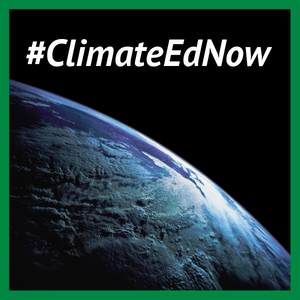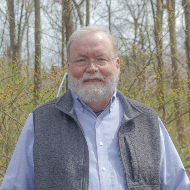As I reviewed state science standards, I realized how no state’s standards — nor the NGSS themselves — addressed today’s NOS challenges. For example, how do you respond to science denial about evolution, climate change, or vaccinations? We know just presenting the same ever more dire climate change graphics and predictions doesn’t change minds. No standard I reviewed, including my own state’s on which I had worked, addressed climate or any other science denial directly.
Then I reviewed Wisconsin’s standards. There, on the last page: “Ask questions to clarify an author’s motivation for promoting unscientific or falsified information on science topics (e.g. climate change, vaccines, GMOs, nuclear energy).”
That performance expectation appears unique among all state K–12 and NGSS standards. But what a great question! Why do some people, organizations, and policymakers promote “unscientific or falsified information on science topics”? Our students need a lot more of that NOS perspective in their K–12 and GenEd science courses.
Purists may complain such perspectives are not “real science.” But in our democracy, effective scientific literacy of graduates from our high schools and universities must include the ability to recognize the absence of objectivity and why it occurs.
A teacher presenting a course outside of field tasked with explaining anomalies needs to know that some climate denial organizations still cite Milankovitch cycles to distract from the fossil-fuel-use hypotheses, why they do that, and how to teach this information effectively while not generating complaints to administrators and school boards or running afoul of “gag order” legislation by state governments.
The NGSS and state science standards derived from them are outdated for current anti-science times when elected officials still call climate change a “hoax.” Their framework documents are elderly, with the primary framework over a decade old and some of its predecessors over a quarter century old. The pedagogical underpinnings for today’s standards and GenEd curricula antedate smartphones and most social media — and the mis- and disinformation they disseminate ever more rapidly and indiscriminately.
Our standards and GenEd curricula need updating to help teachers promote science literacy by helping students address science denial and why it occurs. People who promote “ unscientific or falsified information on science topics” will resist such efforts; they already do. But that’s all the more reason to pursue the effort vigorously. Our standards and college GenEd curricula must be retooled to meet the scientific literacy needs of today’s students in this era of science denial.
Read other essays from our #ClimateEdNow series.

 We have an ethical responsibility to our students to teach climate change given the predictions of current climate models about the world they will inherit and the insufficient current efforts to reduce global greenhouse gas emissions. We obviously should teach about climate change, even though many states don’t. The more timely question is what we should teach about climate change. The answer to that question has to include teaching about science denial, its promoters, and their motivations.
We have an ethical responsibility to our students to teach climate change given the predictions of current climate models about the world they will inherit and the insufficient current efforts to reduce global greenhouse gas emissions. We obviously should teach about climate change, even though many states don’t. The more timely question is what we should teach about climate change. The answer to that question has to include teaching about science denial, its promoters, and their motivations.